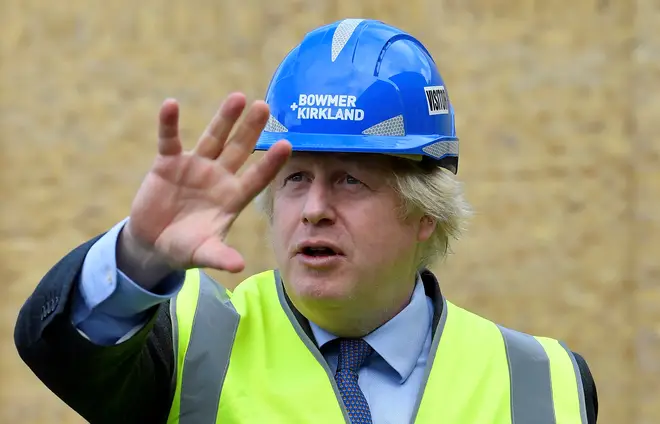
Nick Ferrari 7am - 10am
29 June 2020, 15:13

Former Chancellor Ken Clarke on possibility of austerity after coronavirus
The former Chancellor of the Exchequer told LBC it is highly likely that austerity will come back, but not straight after lockdown is eased.
Ken Clarke served in the cabinets of Margaret Thatcher, John Major and David Cameron and has been Chancellor, Health Secretary and Home Secretary.
As Boris Johnson dismissed plans to introduce austerity as lockdown eases, Shelagh Fogarty argued that it is clear "Boris Johnson wants to slightly redirect the conversation" to the economy. She wanted to know what Mr Clarke felt about the Prime Minister's comments.
"Eventually we're going to have to pay for all this money we're spending" he said, "but not straight away.
"I actually think that to go back to austerity straight away would be disastrous."
The former Chancellor scoffed at comparisons of the coronavirus pandemic and the 2008 financial crash. "The circumstances are totally different to the ones after the financial crash, this is nothing like the financial crash."
Listen & subscribe: Global Player | Apple Podcasts | Google Podcasts | Spotify
He added that "Boris is right to change the subject matter to the economic crisis which is at least as bad as the health crisis and is going to start hitting us now."
The former Chancellor reminded Shelagh that the UK will "have to borrow more over the winter otherwise the consequences of unemployment and everything else will be totally dire" such is the delicate nature of the situation.
Shelagh told Mr Clarke that Keir Starmer has said that there will have to be a budget if the government are planning to change the UK's economic approach to the coronavirus recovery.
Mr Clarke said that at present, there already have been massive steps made by the government in terms of economic stability, such as furlough. From that, the government then has to decide "where you're going to help businesses and the economy - where it's sensible to do so - with whatever money you can afford to print and borrow."

The former Chancellor reiterated the delicate nature of the operation, reminding Shelagh that "you've got to choose sensibly and carefully which public spending is going to have long term and lasting effects to bring us back to a healthy economy" and where some industries and businesses will miss out.
Mr Clarke went on to tell listeners that although it will be difficult to make these decisions, it is easy for the Labour leader to band against this approach when they are not the ones making the decision on where support is given to stimulate economic recovery.
"You've got to begin putting in place prudent policies not least to make sure we can carry on borrowing the money for the things we have to do in this emergency."